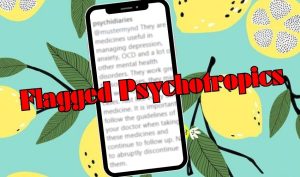Are you looking for a new cutting-edge treatment for Bipolar disorder? Then you are in the right place. Transcranial Magnetic Stimulation, or TMS, is an evidence-based, non-invasive therapy that uses magnetic pulses to stimulate specific regions of the brain. TMS, which was approved by the FDA in 2008 to treat major depressive disorder, has also shown promise as a noninvasive and effective treatment option for bipolar depression. This article will discuss the symptoms, categories, and causes of bipolar disorder, as well as the efficacy of TMS therapy for bipolar depression.
Understanding Bipolar Disorder
Bipolar disorder is a form of depression characterized by alternating episodes of elevated and depressed mood. These episodes can last anywhere from a few days to several weeks and are more intense than normal mood fluctuations. Bipolar disorder affects millions of people in the United States, with an estimated 4.4% of adults developing it at some stage in their lives. Manic symptoms include high self-confidence, racing thoughts, and high-risk behaviors, while depressive symptoms include despondent mood, extreme fatigue, and suicidal thoughts.
Different Types of Bipolar Disorder
There are four primary forms of bipolar disorder: Bipolar I, Bipolar II, Cyclothymic, and Other specified and unspecified bipolar and related disorders. On the basis of the duration and intensity of manic and depressive episodes, these categories are distinguished.
Causes of Bipolar Depression
Bipolar disorder is not completely understood, but it is believed to be caused by chemical imbalances in the brain. Norepinephrine and serotonin play a significant role in the development of bipolar symptoms. A neurotransmitter imbalance can result in manic or depressive episodes. It can be difficult to find effective treatments for bipolar disorder, as medications that mitigate depressive symptoms may induce manic episodes. This has prompted ongoing research into alternative treatment methods, such as TMS therapy.
How TMS Therapy Works for Bipolar Depression
As a cutting-edge treatment for Bipolar disorder, Transcranial Magnetic Stimulation (TMS) is a noninvasive therapy that stimulates nerve cells in specific brain regions associated with mood regulation. TMS generates a magnetic field that induces an electric field in the prefrontal cortex by applying an electromagnetic coil to the cranium. This stimulation induces permanent changes in brain activity, resulting in mood and behavior enhancements. TMS is relatively painless and has minimal side effects, allowing patients to promptly resume their normal activities.
Repetitive Transcranial Magnetic Stimulation (rTMS) and Deep Transcranial Magnetic Stimulation (Deep TMS)
rTMS is a subtype of TMS that employs magnetic pulses to influence brain activity. It is frequently administered in multiple sessions over the course of several weeks, with some patients requiring maintenance treatment. Deep TMS, on the other hand, utilizes specialized apparatus and H-coils to target deeper brain regions. This technique enables the effective treatment of a wider variety of mental disorders. Deep TMS is FDA-approved for the treatment of severe depression and obsessive-compulsive disorder (OCD) that is resistant to treatment.
TMS Treatment for Bipolar Depression
TMS has been shown to be a safe and effective treatment for bipolar depression, even in treatment-resistant cases. TMS can induce significant improvements in depressive symptoms by stimulating the left dorsolateral prefrontal cortex, a region involved in mood regulation. Clinical investigations have demonstrated that approximately 70% of individuals with bipolar depression respond positively to deep TMS. In addition, TMS has demonstrated cognitive enhancement across multiple domains, thereby enhancing the overall recovery process for those with bipolar disorder.
Comparing TMS to Traditional Treatments
For individuals with treatment-resistant bipolar depression, TMS can be an appealing alternative to traditional treatments. TMS has minimal systemic side effects and does not require medication adjustments or drug interactions, unlike many other medications. It also offers a non-invasive option for those who may not tolerate or respond well to medications.
In addition, TMS treatment does not require anesthesia or sedation, thereby eliminating the associated risks and recovery time. Unlike electroconvulsive therapy (ECT), which is another treatment option for severe depression, TMS does not cause memory loss or cognitive impairment. This makes TMS particularly attractive for individuals who value cognitive function and want to minimize disruptions to their daily lives.
Furthermore, TMS therapy can be readily integrated into an individual’s treatment plan. It can be used as a standalone treatment or in combination with medication and psychotherapy. This flexibility allows for personalized and comprehensive care, addressing the unique requirements and preferences of each patient.
Depending on the specific protocol and individual response, the length of TMS treatment sessions can vary. Typically, sessions last between 20 and 40 minutes, and the treatment course consists of multiple sessions over the course of several weeks. The exact number of sessions is determined by the treating clinician, based on the individual’s response and treatment objectives.
It is essential to note that TMS is not a cure for bipolar disorder. It is a therapeutic tool that seeks to alleviate depressive symptoms and improve overall functioning. Maintenance treatments may be recommended to sustain the benefits obtained during the initial treatment course.
New Cutting-Edge Treatment for Bipolar Disorder
Transcranial Magnetic Stimulation (TMS) is a novel and promising treatment for bipolar depression. TMS can provide relief from depressive symptoms without systemic adverse effects by targeting specific brain regions associated with mood regulation. TMS is a viable option for individuals with treatment-resistant bipolar depression due to its noninvasive nature and minimal effect on cognitive function.
As research and clinical experience continue to expand, TMS therapy has the potential to transform the bipolar disorder treatment landscape. It offers promise to those who have struggled to find effective solutions and opens the door to individualized, integrative treatment plans. With its demonstrated efficacy and safety profile, TMS is a beacon of hope for those navigating the difficulties of bipolar depression, offering new avenues of recovery and an enhanced quality of life.




